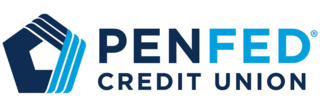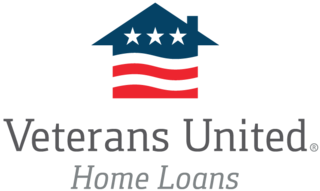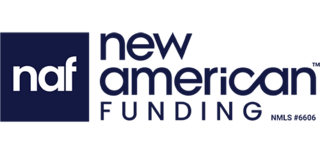7 Best VA Loan Lenders of 2026
There are many mortgage programs you can choose from when buying a house. But military members and veterans? They have access to an option that civilians don't: The VA loan.
VA loans are mortgages guaranteed by the U.S. Department of Veterans Affairs and are available only to military members, veterans and their spouses. These loans offer low interest rates, require no down payment, and provide significant benefits that other loan programs don’t offer.
Are you considering a VA mortgage for your home purchase or refinance? Here’s what to know about these loans and the best lenders who offer them:
What to know about VA loans:
- VA loans are available only to eligible U.S. military service members, veterans and their spouses.
- You or your spouse must meet specific military service requirements to qualify for a VA loan. The length of your service requirement varies based on when you or your spouse served in the armed forces.
- VA loans tend to have lower interest rates than other loan options and don’t require a down payment.
- Not all mortgage companies offer VA loans. Only approved lenders may issue these mortgages.
- VA loans don’t require mortgage insurance. Borrowers may need to pay a VA funding fee, though.
How we chose our top picks
Money reviewed three dozen VA mortgage lenders throughout the U.S., using government data, lender websites and lender representatives to confirm data accuracy. We then used factors such as product variety, average interest rates, reputation, loan terms, credit score requirements and geographic availability to score each lender on a one-to-five scale. What you see below are the top companies that emerged.
Read our full methodology to learn more about our approach.
Our top picks for the best VA loan lenders of 2026
- loanDepot: Best Overall
- Rocket Mortgage: Best for Refinancing
- Pennymac: Best Online Lender
- CrossCountry Mortgage: Best for Building or Repairing a Home
- PenFed: Best Credit Union
- Veterans United: Best for Customer Service
- New American Funding: Best for Low Credit Borrowers
Best VA loan lender company reviews
- Competitive interest rates
- Lots of loan and term options
- Serves all 50 states
- Low credit score requirements
- 1 regulatory action in last five years
- No advertised interest rates
- Loan products
- Purchase, IRRRL, cash-out refinancing, renovation, energy-efficient
- Terms
- 15, 20, 25, and 30 years for fixed-rate loans; 15 and 30 years for renovation loans; 5/1 ARMs
- Credit score minimum
- 520
- Geographic availability
- 50 states
Why we chose it: loanDepot takes the crown as our top-rated VA mortgage lender, boasting a 4.4 score out of 5. The company offers a wide range of VA loan options, a variety of terms and low average interest rates, according to government data. It also serves all 50 states and has a minimum credit score requirement of just 520 — among the lowest on our list.
- Competitive interest rates
- Lots of loan and term options
- Serves all 50 states
- Low credit score requirements
- 2 regulatory actions in last five years
- No physical locations
- Loan products
- Purchase, IRRRL, cash-out refinancing, jumbo
- Terms
- 15, 20, 25 and 30 years; 5/1 ARMs
- Credit score minimum
- 580
- Geographic availability
- 50 states
Why we chose it: Whether you need to reduce your interest rate or take cash out of your home equity, Rocket Mortgage’s VA refinancing options can help you do it. The company also boasts a wide range of loan terms, low average interest rates and a mere 580 credit score minimum. Rocket Mortgage had the second-highest score of all the VA lenders we analyzed.
- Competitive interest rates
- Serves all 50 states
- Low credit score requirements for purchase loans
- Has advertised rates to help you gauge costs
- No physical locations
- Limited loan and term options
- Loan products
- Purchase, IRRRL, cash-out refinancing
- Terms
- 10 to 30 years
- Credit score minimum
- 580 (purchase), 620 (cash-out)
- Geographic availability
- 50 states
Why we chose it: If you’re looking for a quick and easy online VA loan experience, PennyMac can help. The online lender offers both refinancing and purchase options, and offers competitive interest rates on both products. Its credit score minimum is also quite low.
- Lots of loan and term options
- Serves all 50 states
- Low credit score requirements
- Strong reviews and ratings
- 1 regulatory action in last five years
- Higher average interest rates than many competitors
- Loan products
- Purchase, IRRRL, cash-out refinancing, renovation, one-time-close construction
- Terms
- 15, 20, 25 and 30 years
- Credit score minimum
- 500
- Geographic availability
- 50 states
Why we chose it: VA renovation and construction loans aren’t offered by most lenders, but CrossCountry Mortgage boasts both. Use one to renovate your existing house, buy a fixer-upper and roll the repair costs into a single loan, or build your dream home from the ground up. The lender’s ultra-low credit score requirements and many loan terms are icing on the cake.
- Lowest average interest rates of all lenders analyzed
- Serves all 50 states
- Has advertised rates to help you gauge costs
- Limited loan and term options
- Credit score requirement could be lower
- Loan products
- Purchase, IRRRL, jumbo
- Terms
- 15 and 30 years
- Credit score minimum
- 620
- Geographic availability
- 50 states
Why we chose it: Credit unions are known for having low rates — and PenFed is no different. PenFed offered some of the lowest average interest rates throughout our evaluation period, with APRs starting in the low 6% range. PenFed also serves all 50 states and doesn’t require membership when applying for a loan, although you will have to become a member before closing on the loan. Anyone can join PenFed by opening a savings account with an initial deposit of $5.
- Lots of loan and term options
- Serves all 50 states
- Strong reviews and ratings
- Has advertised rates to help you gauge costs
- Highest average interest rates on our list
- Credit score requirement could be lower
- Loan products
- Purchase, IRRRL, cash-out refinancing, jumbo
- Terms
- 10, 15, 20, 25 and 30 years
- Credit score minimum
- 620
- Geographic availability
- 50 states
Why we chose it: You won’t find a more experienced lender in the VA loan space than Veterans United. The niche lender specializes in serving military members, and its strong reviews and spotless regulatory history speak to its commitment to that cause. According to the most recent full-year government data, Veterans United has been the No. 1 VA lender by volume for the last three years, issuing more than 61,000 loans and $19 billion in financing in 2024 alone.
- Low credit score requirements
- Serves all 50 states
- Lots of loan options
- Strong reviews and ratings
- 2 regulatory actions in last five years
- Middle-of-the-road interest rates
- Loan products
- Purchase, IRRRL, cash-out refinancing, construction
- Terms
- 15-30 years for fixed-rate; 5/1 ARMs
- Credit score minimum
- 500
- Geographic availability
- 50 states
Why we chose it: The VA doesn’t have hard credit score requirements for its loans, but individual lenders can set their own thresholds. And New American Funding? They’ve set theirs low. The lender accepts credit scores as low as 500, and there are even options for borrowers with no credit. NAF is also known for its great service, boasting a 4.8 rating on Trustpilot and a 4.9 rating on Zillow.
Other companies we considered
USAA
USAA is a well-known name in the military community, and it offers a wide range of loan options for VA borrowers. It also offers other financial services for military members, including insurance, credit cards and banking options, making it a good choice if you're looking for a one-stop shop.
Why we didn't choose it: It’s not transparent about its credit score minimums and loan term options, though, and its 1.2-star rating on Trustpilot leaves a lot to be desired. A whopping 88% of customers give their experience just one star on the site.
Navy Federal
Navy Federal is the fifth-largest VA lender in the nation, offering low rates and a wide range of loan options, including the “Military Choice” loan, which veterans who have already exhausted their VA entitlement can use to purchase a home.
Why we didn't choose it: The lender has an F rating with the Better Business Bureau, indicating it’s not great at handling customer complaints or feedback.
Mutual of Omaha
Mutual of Omaha scored pretty high on our overall ratings scale, and its loan variety, super-low credit score requirements, competitive interest rates and wide array of term options are all notable.
Why we didn't choose it: The major issue with this lender comes down to regulatory actions. Mutual of Omaha has had four in just the last five years.
What you need to know about VA loans
"The VA loan is one of the most powerful tools for military members," Chris Birk, vice president of mortgage insights at Veterans United Home Loans, says. "It's designed to make homeownership more achievable and sustainable."
VA loans are similar to other mortgage loans, with a few key exceptions. Here’s what you need to know if you’re considering a VA loan purchase or refinancing a home:
What is a VA loan?
A VA loan is a type of mortgage that is guaranteed by the U.S. Department of Veterans Affairs. This means that if you default on your loan (you fail to make payments), the VA will repay the lender for a portion of its losses.
The VA also sets the basic qualifying requirements for these loans, though the department doesn’t actually provide them. Instead, private, VA-approved mortgage lenders — such as those listed here — issue them directly to consumers. For this reason, rates and terms can vary depending on the company you apply to.
Who qualifies for a VA loan?
VA loans are a benefit available to military members and veterans, as well as some qualifying spouses. To be eligible for one, you must not only have a military service record, but you must have served a certain amount of time. For current service members, it’s at least 90 continuous days. For veterans, it depends on when you served. The following are the most recent VA service requirements.
Period served | Service requirement |
|---|---|
Aug. 2, 1990 - present | One of the following:
|
Sept. 8, 1980 - Aug. 1, 1990 Oct. 17, 1981 - Aug. 1, 1990 (as an officer) | One of the following:
|
May 8, 1975 - Sept. 7, 1980 (post-Vietnam War period) May 8, 1975 - Oct. 16, 1981 (as an officer) Feb. 1, 1955 - Aug. 5, 1964 (post-Korean War period) July 26, 1947 - June 26, 1950 (post-WWII period) | One of the following:
|
Aug. 5, 1964 - May 7, 1975 (Vietnam War) Nov. 1, 1955 - May 7, 1975 (in the Republic of Vietnam) June 27, 1950 - Jan. 31, 1955 (Korean War) Sept. 16, 1940 - July 25, 1947 (WWII) | One of the following:
|
Some National Guard and Reserve members are also eligible for VA loans. You typically need at least 90 days of non-training, active-duty service or at least six creditable years in the Reserves or Guard.
What costs are associated with a VA loan?
VA loans come with closing costs like any other loan, and you’ll generally pay somewhere between 3% to 5% of your loan amount, depending on your lender.
One fee unique to VA loans is the VA funding fee, which helps support the VA loan program. The cost of this fee ranges from 0.5% to 3.3% of the loan amount, depending on how you’re using the loan, how many times you’ve used the VA loan benefit, and the down payment you’re making.
VA loans also allow the seller to pay for some or all of the loan's closing costs. Sellers can also pay up to 4% of the loan amount in concessions, which may include discount points, a temporary rate buydown, or prepayment of taxes and insurance fees. This can help significantly reduce the upfront costs of a VA loan.
Types of VA loans available
There are several types of VA loans you can use, depending on your goals.
These include:
- VA purchase loans: These are VA loans you can use to buy a home. You do not need a down payment.
- VA IRRRLs: Short for Interest Rate Reduction Refinance Loans, these are the VA loans you’d use to refinance your mortgage and reduce your interest rate. You can also use them to move from an adjustable interest rate to a fixed one or to lower your monthly payment. You must already have a VA loan to qualify.
- VA cash-out refinances: VA cash-out refinances let you take out a loan that’s larger than your current one and keep the difference in cash.
- Jumbo VA loans: Although the VA does not have a maximum loan limit for borrowers with full entitlement, lenders often refer to loans that exceed the conforming loan limit set by the FHFA as jumbo loans. You might use this if you’re buying a larger house or a property in a particularly pricy housing market.
- VA renovation loans: A VA renovation loan is an option if you want to buy a home that needs repairs or safety updates, or you need to fix up your existing home. With the former, you’d roll both the repair costs and the home’s purchase price into one single loan.
- VA construction loans: This is the VA loan you’d use if you wanted to build a home from the ground up. These may include one or two closings, depending on your lender, and aren’t widely offered.
- Energy-efficient loans: The VA's Energy Efficient Mortgage allows eligible borrowers to finance up to $6,000 in approved home improvements that increase energy efficiency and help reduce utility bills.
Loan options can vary quite a bit from one mortgage company to the next, and not all VA-approved lenders offer all of these options. Be sure to shop around if you’re looking for a specific type of VA loan.
What to look for in a VA lender
There are many VA-approved mortgage lenders, but no two are exactly the same. To make sure you’re getting the best one for your budget and needs, you should consider:
- Available loan options, as these vary widely between companies
- Company Reputation, including customer reviews, lawsuits, regulatory actions and online ratings
- Loan Terms and interest rates, including whether the rates are fixed or adjustable
- Loan qualification requirements, such as credit score minimums and DTI thresholds
- Geographic footprint, as not all lenders serve all 50 states
Be sure to compare loan estimates from each lender you consider. These will provide you with insights into how each one’s fees and closing costs compare. You can also ask each lender about any incentives they might offer, such as mortgage rate buydowns.
The pros and cons of a VA loan
- Low interest rates
- No down payment required
- Loans are assumable, meaning a future borrower can take over the loan when buying your house
- No mortgage insurance required
- May offer more credit and debt flexibility than other loans
- Only available to qualifying military members, veterans and military spouses
- Require a VA funding fee in most cases
- Only primary residences allowed
- Property must meet certain standards and safety requirements
- Slower equity building if you make no down payment
Alternatives to VA loans
Even if you are a veteran or military member, VA loans aren’t the only loan option you have at your disposal. You can also consider:
- Conventional loans: Conventional loans are an option if you have a decent credit score. They allow down payments as low as 3%, though you will need to pay for private mortgage insurance if your down payment is less than 20%. However, you will need a good to excellent credit score to qualify for the best rates.
- FHA loans: FHA loans offer low interest rates and allow down payments as low as 3.5%. You need a credit score of 500 to 580, depending on your down payment and lender. FHA loans require a mortgage insurance premium, which is partly paid up front, with the other portion included in your monthly mortgage payment.
- USDA loans: USDA loans are an option if the home you’re buying is in an eligible rural or suburban part of the U.S. You will also need to fall under a certain income threshold for your county. Minimum credit score requirements are set by the lender, not the USDA, and these loans can be obtained with 0% down payment.
If you’re not sure what the best loan is for your home purchase or refinance, talk to a loan officer or mortgage broker. They can walk you through your options.
Latest news in VA loans
The VA loan is considered one of the most important benefits for active and retired members of the armed forces. Its 0% down payment requirement, competitive rates and federal guarantee are hard to beat for prospective homebuyers.
Despite its benefits, however, recent research by mortgage lender Veterans United indicates that the loan product may be underused in many cities. The lender estimates that more than 58,000 VA-eligible homebuyers opt for a different mortgage product each year, leaving behind tangible advantages on the table. According to Birk, this underutilization is due to common misconceptions and stigmas associated with the loan.
"Many think VA loans are slower, harder to close or come with hidden costs," Birk says. "Those myths can discourage both buyers and real estate professionals."
While many sellers and agents assume a purchase offer with a VA loan is weaker than other loan types, the reality, Birk says, is that VA borrowers are among the most qualified on the market. More education about the benefits of the VA loan program is needed to make eligible service members, sellers and real estate professionals aware of these loans and how they can help address affordability challenges in the housing market.
VA loan lenders FAQs
How does a VA loan work?
What is the downside of a VA loan?
Do you pay closing costs with a VA loan?
Who is the best VA loan lender?
What is the current VA loan interest rate?
Methodology
We evaluated three dozen VA mortgage lenders nationwide, gathering data on product terms, qualifying requirements, interest rates, availability, reputation and other factors to zero in on the best ones. Lenders were rated on a one-to-five scale based on six categories: product variety (20%), average interest rates (20%), reputation and regulatory issues (20%), credit score minimums (20%), term options (10%) and geographic availability (10%)
We prioritized companies that:
- Have strong customer ratings and no regulatory actions listed in the Nationwide Mortgage Licensing System in the last five years.
- Offered low average interest rates as measured from Home Mortgage Disclosure Act data for VA mortgages issued in 2023 — the most recent data available at the time of our analysis.
- Have low credit score minimums and wide geographic availability, allowing more borrowers to access their products.
- Offer a wide variety of VA mortgage products, including purchase loans, cash-out refinances, jumbo loans and construction/renovation loans.
Summary of our top picks for the best VA loan lenders of 2026
- loanDepot: Best Overall
- Rocket Mortgage: Best for Refinancing
- Pennymac: Best Online Lender
- CrossCountry Mortgage: Best for Building or Repairing a Home
- PenFed: Best Credit Union
- Veterans United: Best for Customer Service
- New American Funding: Best for Low Credit Borrowers













